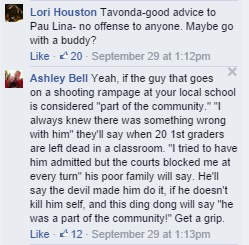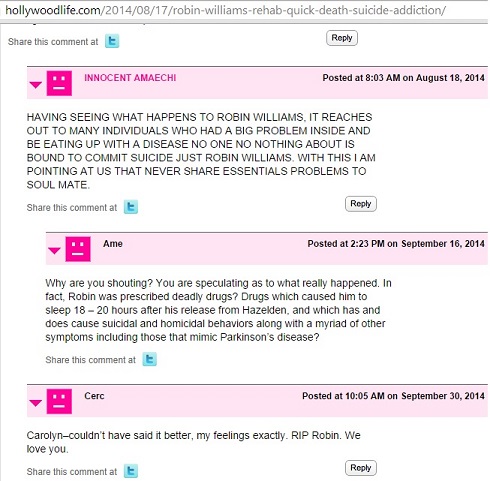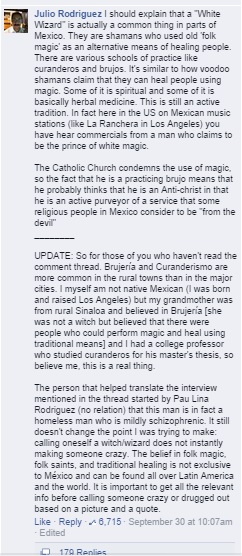A List Of 5 Mental Health Trolls—And How To Crush Them
By Ester Alegria in News on Oct 5, 2014 8:00PM
In April of 2012, Mayor Rahm Emanuel closed 12 vital neighborhood mental health clinics—one of which, the Beverly/Morgan Park Mental Health Clinic, I visited often.
My counselor—he was kind and open—protested and fought relentlessly to keep the clinic open. He went well beyond his job requirements to make sure the therapy group I belonged to was thriving. He was just one of a team of mental health advocates who have worked selflessly to assure my mental stability.
Unfortunately, I pass that building now and no longer see a clinic.
Another person who worked closely with me on my stabilization was Colin Peters of The Chicago Harm Reduction Therapy Center, which offers a no pressure alternative to traditional addiction treatment. I asked him how the 2012 closures have impacted his practice, and if he has noticed any increases in traffic on his end. For legal purposes, the name of the institution has been redacted.
Peters stated:
“Essentially, some people found themselves without any place to go. There were theoretically case managements where people had somewhere to go—whether people followed through or not, or something else happened, a lot of people came to us because we were in the neighborhood, we were a big hospital and we would help them out. And they were right. And that also meant that we got swamped.”
After I left the care of Colin and his team, I felt more confident and ready to fight my diagnosis. So, I started working on more of my writing, speaking out against ableism, sexual abuse, and other things that I dealt with in therapy, and, in turn, felt empowered enough to give back to the world.
But I have to admit. I have a compulsion, one that threatens that hard-earned empowerment. It’s extremely hard for me to avoid reading comment threads.
Maybe it’s the writer in me wanting to know what the public is really thinking, or maybe I’m just masochistic. The reason doesn’t change the fact that I jump in thinking that I’ll read a comment with which I wholeheartedly agree, and gleefully give a virtual thumbs up.
But my dreams are dashed time and again by people who, through the protection of the Internet, have gained massive strength and impenetrable self-esteem, deeming them capable of causing even the kindest, most innocent among us to jump to our deaths, perhaps because we have different principals. This phenomenon is called "Web Bravery." The power to say whatever you want, online with little to no direct, real life consequences. [I coined the phrase, regardless of what my ex says.]
“Web Bravery” is displayed mainly in comment sections, as they are breeding grounds for “trolls.” Not all people who display web bravery are trolls, but all trolls absolutely bask in web bravery.
To anyone dealing with mental health issues, reading articles online, privately at home can be a gift. Any prospective medication needs to be researched, symptoms are constantly obsessed over, and there’s the need for community.
Joining online support groups that relate to your diagnosis can be extremely helpful, especially when you have no one else to talk to. [And, when clinics close, as they do in Chicago, there can often be no one else to talk to.]
These groups should be safe places where we can share our stories and commiserate—laugh about shared experiences, and find peace during tragedies. Often times, mean spirited people slip through the cracks and join these communities. Even if a moderator steps in, a lot of damage can be done in a short while.
While adding commentary to articles that hold special value to a poster’s life, it is easy to be distraught by harmful things that are said. And it is not the reader’s fault for getting upset or "overly emotional."
When crushing the virtual troll, one must first learn to identify the different types one might encounter. I have compiled a small list to get you started on ridding your life, and possibly the entire internet, of these harmful malfeasants for all eternity.
1.The Concern Troll
The “Concern Troll,” is one of the most common of them all. They usually frequent threads involving youth, women, body image, or in this case persons battling diagnoses. They cloak themselves in feigned concern and conscious fear of what will happen if something or someone doesn’t step in immediately and invoke the powers of the goddess Hecate, raining benevolence upon all the underprivileged of the world—but only if they approve of every aspect of said person’s life. Take this Mexico City man, for example:

This person's comments are harmful because it spreads the false idea that all persons who battle mental health issues are dangerous and pose a threat to the world. This sort of thinking often lead to the brutal and archaic treatment of mental health patients in the past.
While discussing recovery and online bullies, Colin Peters remembered a comment that was aimed at him online. He once mentioned Naloxone, an opioid antagonist that can be administered quickly and easily after a heroin overdose. One disapproving Concern Troll said, “What? You’re saving the lives of heroin addicts?” Displaying their disdain for the heroin user's behavior, and hinting that a person should die because they struggle with addiction.
2.The Class Clown Troll
Be on the lookout for the Class Clown. They will type anything for likes or replies. They are quick witted, usually equipped with thread relevant memes, and they always seem to have either 10 arms with which to type, or lightning internet speeds. They’re funny, so they might actually be fun to hang out with if they weren’t totally devoid of empathy. The CC starts with very heavy sarcasm, then, when faced with opposition, a CC will morph into a repulsive hatred spewing—fiend saying whatever it takes to hurt the feelings of anyone who calls them out on their rudeness. You will find them literally everywhere. Web Bravery is strong with this one.

3.The Life is Beautiful Troll
No, Roberto Benigni is not cruising the internet posting screenshots of himself riding a desecrated horse. There are some who I think actually are trying to be nice, but the gesture gets lost in their overreaching and failure to empathize with the opposite party.

Local Chicago musician, Anna Holmquist, part of the band, Cold Country, which can be found on Illinois' own Daytrotter, has had unfortunate experiences with these in particular .
Anna writes:
“When my brother killed himself, one of the most frustrating things for me to hear in person and online was about how he was such a happy person. People go on and on about his big smile (it was big, and wonderful) and how he was so happy and funny and fun to be with. I know he did bring joy into people's lives but he was NOT happy. Happy people don't kill themselves. Most people didn't see the other side of him. So it was frustrating to see all these Facebook posts about him being happy.”After my own brother’s suicide, I remember feeling upset upon hearing how he was happy, and would never commit suicide. Dealing with bipolar disorder, I know exactly how it feels to be so depressed; I’d sleep all day because blinking my eyes was too much movement for me to handle. I understand why some people feel like death is the only option. Thankfully, I made it to the free mental health clinic here in the city when it was available to me. But this is a life long struggle that takes support from family and friends, therapy, healthy living, proper sleeping patterns, and for me—medication compliance.
4.The Conspiracy Theory Troll
The thing about Conspiracy Theory Trolls is this: they have read every blog, they subscribe to all of the YouTube channels, and they have time to post on everything—especially if it smells like controversy. Look for them around news on a celebrity’s passing, politically driven stories, Yahoo, or anything dealing with “big pharma”.

5.The People Who Are Making Horrible Google Searches Relevant
While trying to search, “why are bipolar medications sedatives,” Google’s predictive search suggested some rather offensive options:

It’s no harm on Google’s end. It’s all a part of their auto-correct algorithm to help us move our fingers less often. Brilliant, I’m down with that. But I wonder, how many people are searching, “why are bipolar people so mean, selfish, hypersexual?” OK. I’ll own up to that last bit. But I am not mean or selfish; in fact, some may argue that there is a correlation between bipolar disorder and hypersensitivity/empathy. I’m 87% sure that the people validating these searches are the same people who make blanket statements like these:
Oh Man! I must be bipolar.
😊😣😢😡😭😃😄😂
Hahahaha. Seeeeee?!
#moodsoftheday
goodnight! :)
— grazie balaaldia (@gjcb33) October 3, 2014I feel like the world would be a better place if people weren't bipolar and knew what they wanted.
— joanna abigail (@joannaisadroid) October 3, 2014Now, prepare your body for the troll crushing.
Step 1. When a web troll tries to initiate the ritualistic offensive and/or snarky post and you get the urge to reply, click this link instead.
Step 2. When you've gone back to the thread to see how many replies or likes your post has gotten, c'mon—I know you do it too—resist! Click this link instead!
Step 3. This is the big finale. If those two steps fail, though they probably won't as they've totally stopped me from cleaning my apartment a few times—10 out of 10, would click again—you can crush web trolls by writing one single, well-written post, that does not attack or demean anyone. Just say what you have to say on the subject, drop the mic, and walk away. Kind of like this guy obliterating the HONY trolls, with a cultural lesson:

I call this person, "The Voice of Reason". And we all know:
So there you have it. Be well.
